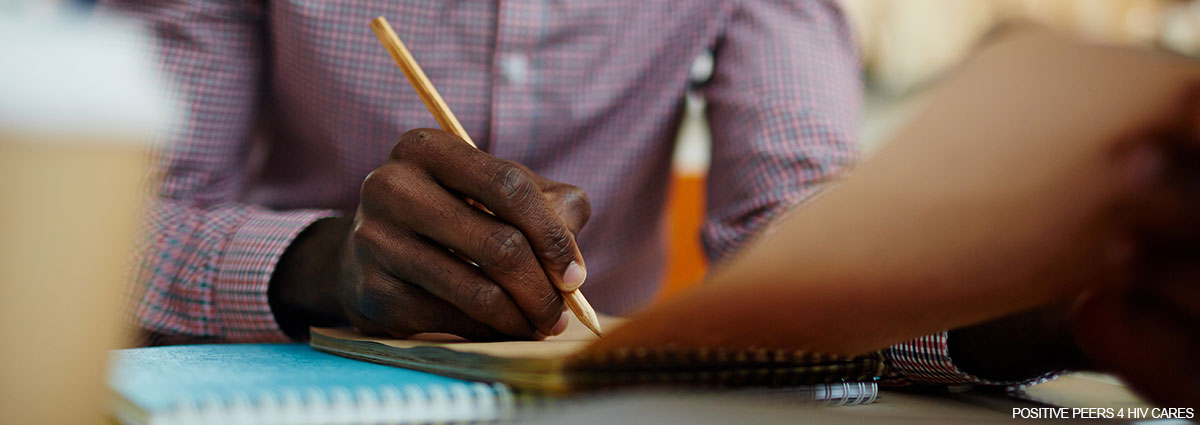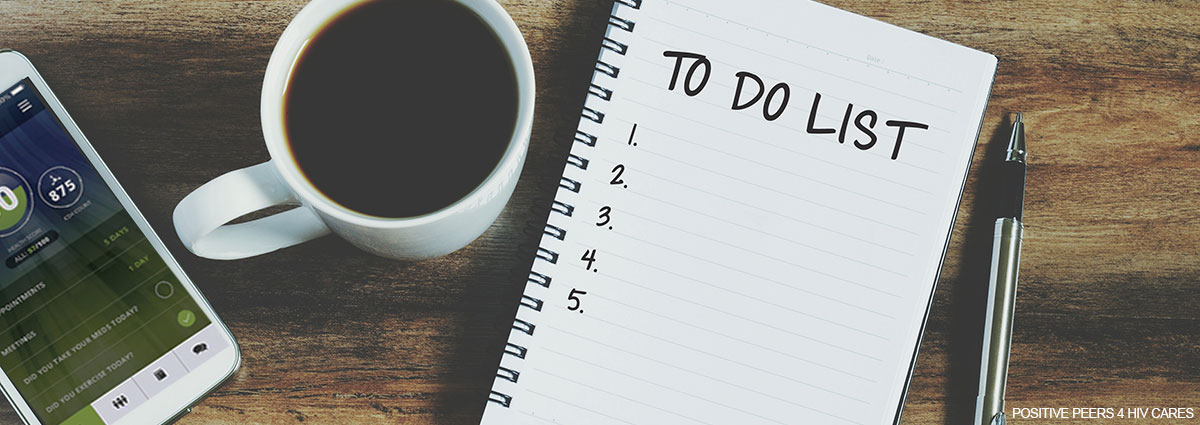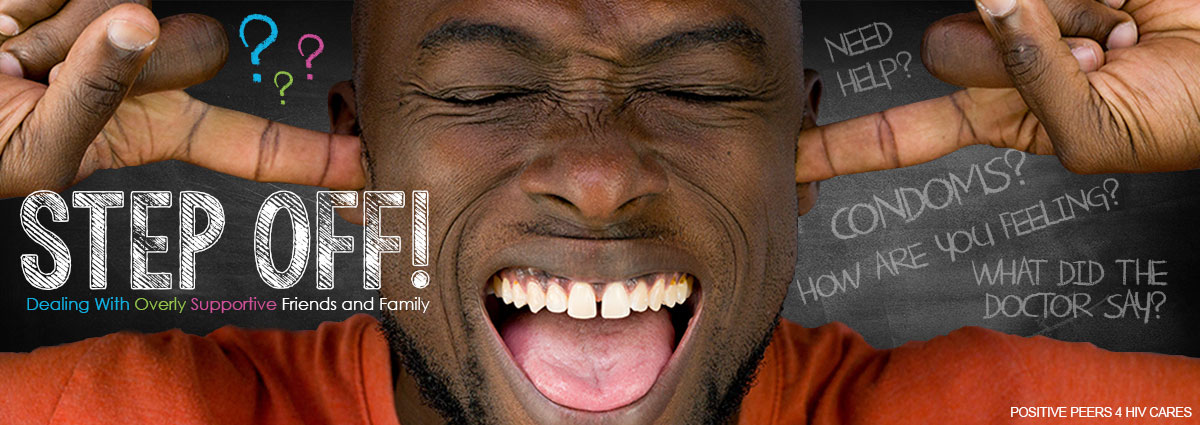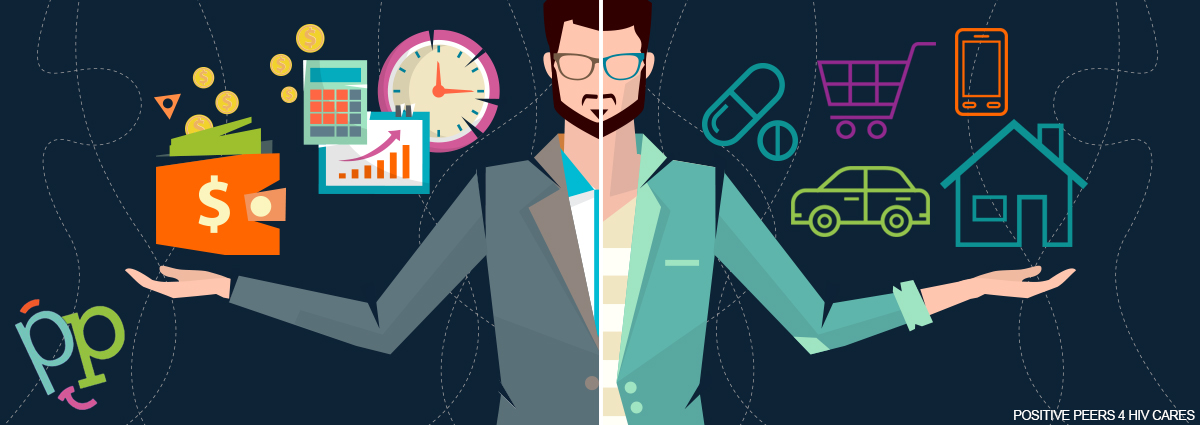By: Jennifer McMillen Smith, LISW-S, HIV Social Worker at MetroHealth Medical Center and medically reviewed by Ann K. Avery, MD, Infectious Disease Physician at MetroHealth Medical Center
Everyone has a complicated life. You have to balance school, friends, family, partners, work, having fun, relaxing, and tons of other stuff.
Now you find out you have HIV, which can make things seem even more complicated.
It’s true that HIV changes the way you handle priorities. You now have appointments and medication to think about. However, if you manage your priorities and make time for what matters most, then you’ll have an easier time adjusting to it all.
How do you get better at making priorities and managing your time? Try these tips and see how you do:
1. Put your health first
Maybe this example will help you out:
Airliners have automatic safety systems that cause oxygen masks to fall down in front of passengers’ faces so they can keep breathing if the plane’s cabin loses air pressure and all the oxygen leaks out.
The flight attendants tell passengers: Put the oxygen mask on yourself first — before you put it on your child.
Why do they tell Mom to put her own health ahead of her child’s? If Mom passes out from oxygen starvation before she gets the air mask on her child, both are in a bad situation.
Putting your health first works the same way. You have people around you who depend on you. That’s only natural: friends and family help each other out.
But you have to be healthy to be there for the people who are counting on you.
2. Make a list of five things that matter most to you
There’s a famous American billionaire who advises people to do this: Get out a piece of paper and write down the stuff you feel like you really, truly need to get done in your life. It can be 10 things or 30 things. Just write whatever comes to mind.
Once you've done that, pick the five things on your list that you care most about.
And just forget about the rest.
So, your “five things” might be:
- Staying healthy
- Getting more education or job training
- Having a strong, monogamous relationship
- Seeing more of the world
- Becoming an artist
This is just an example – your list has to apply to your life.
With your five-things list, anytime you’re having a hard time deciding whether to do something, ask yourself this two-part question:
Is it helping with your five things, or is it hurting?
This can help you filter out all the distractions and temptations in your life.
Keep this in mind: Your five things need to be realistic and achievable. It’s really hard to become rich and famous. It’s much easier to do a good job, be a nice person, and try to make yourself a little bit stronger and smarter every day.
3. Make your brain the boss
Most of us do stuff by instinct or habit without really thinking it through. Sometimes we let our emotions — fear, love, envy, guilt, lust — call the shots, and then we end up in messy situations.
One way to help avoid this is to put your brain in charge. Pay very close attention to what works and what doesn’t work. If something works for you, keep doing it. If something causes problems, then stop doing it.
If your brain’s in charge, you’re thinking about the consequences of doing things before just diving into them. You’re being cautious instead of reckless.
Come join our private, stigma-free, supportive community.
Health management tools with medication & appointment reminders.
Social networking in a community conversation & private chats.
4. Conquer your biggest distractions
Your five-things list has one true enemy: distraction
There’s always something — Twitter, video games, TV shows, friends, attractive strangers— trying to get your attention and steer you off-course.
Try to remember that all those distractions are there for them, not you. Games need players. Social media platforms need users. TV shows need an audience.
See how that’s all about their needs?
Your five things are your needs. The rest are extras. Don’t try to remove them from your life completely; Just try to use them as occasional rewards for sticking to your five-things list.
5. Take things one step at a time
Think about the Pyramids in Egypt. Imagine how many stones it must’ve taken to build them. Probably hundreds of thousands.
But there was a time when there were no Pyramids at all. They had to be built — one stone at a time.
This is one of the greatest challenges of being HIV positive: You feel like you have to do a hundred things, and you have to do them all right now.
Well, you don’t. Focus on putting one foot in front of the other, building your life like people built the Pyramids.
6. Create schedules and to-do lists
Some people find it’s helpful to write down a list of what they need to do every day.
They schedule when to take their meds, when to go to work, when to do certain jobs while they’re at work, and what they plan to do on the weekend.
There’s a whole science of time management. Search on Google for tips or stop by your library and check out a book with time-management tips.
Once you’ve created your five-things list, it becomes easier to create your to-do lists. Before you go to bed at night, you can think of all the stuff you want to do the next day, and cross off the list anything that doesn't help with your five-things goals.
Related Blogs:







